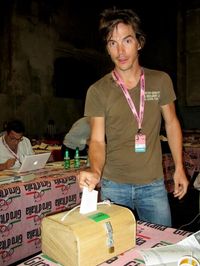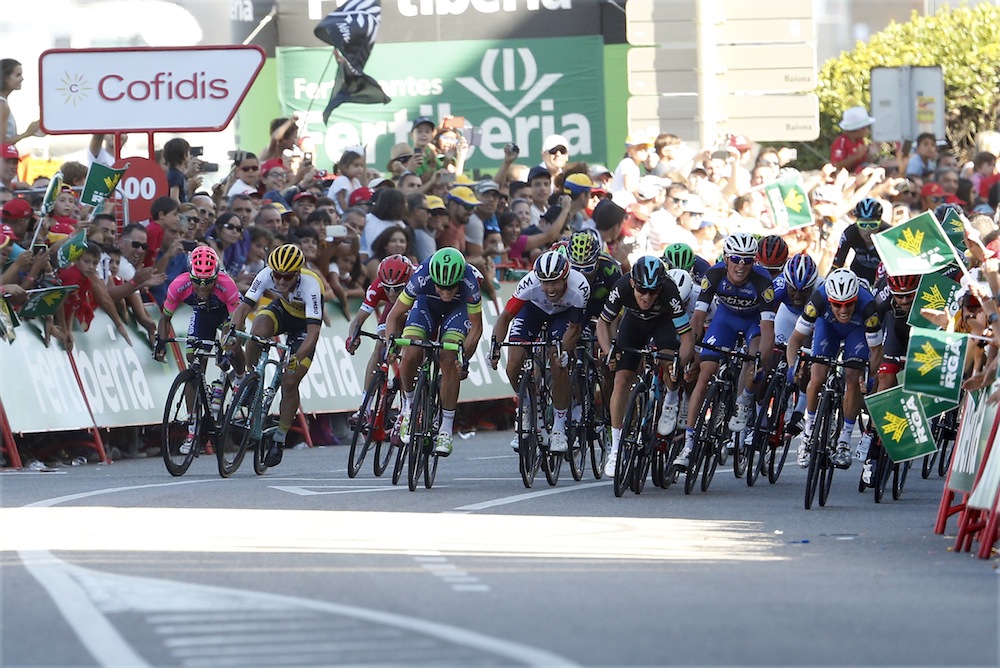'It's beautiful to compete with the big sprinters, I wish they were here'
Lack of sprint stars doesn't make the Vuelta a España sprint finishes any less challenging, say riders


The latest race content, interviews, features, reviews and expert buying guides, direct to your inbox!
You are now subscribed
Your newsletter sign-up was successful
The level remains high and the sprints stay difficult, say the Vuelta a España's competitors, despite the lack of top stars like Mark Cavendish and Marcel Kittel. Some, however, wish the big names had come to Spain.
After starting yesterday, the race sped into Baiona on Spain's northwest coast where Belgian Gianni Meersman (Etixx–Quick-Step) won.
The Vuelta a España this year features 10 summit finishes and few, perhaps around four, stages for sprinters. As a result and with other races going on at the same time in the next three weeks, like the Tour of Britain, the star sprinters turned their back on the Vuelta.
>>> Too brutal for sprinters: Teams prepare their climbers for mountainous Vuelta a España
"The sprint was difficult today because there was a lot of stress, and I don't think I've ever seen anything like that," Italian Niccolò Bonifazio (Trek-Segafredo) said. "We had one crash at 3km out and another at 100 metres.
"There are not teams to take control of the race. If one of the big sprinters were here, a team like Etixx with Kittel could stay at the front and it would be calmer.
"I prefer it when they at the races because it's beautiful to compete with them. Anyway, there's a good level here. But, again, I prefer to have the big sprinters here."
The latest race content, interviews, features, reviews and expert buying guides, direct to your inbox!
On paper, the Vuelta's best sprinters are Kristian Sbaragli (Dimension Data) and Bonifazio, who placed sixth and seventh, respectively.
"There are not pure sprinters here, but the level in the sprint is still high," said Sbaragli, who races in team Dimension Data and has his chance without Cavendish in Spain.
"Every team has one sprinter, one guy who can do well in a small bunch sprint. Whoever feels good, their team will control the race.
"It's really different in the Vuelta, though, there are not really flat stages, it's hot and it is at the end of the season. Every year it is like this, there are not many sprinters because there are not chances for them. Meersman can compete with all the sprinters at that intermediate level."
Meersman won over Michael Schwarzmann (Bora-Argon 18), Magnus Cort Nielsen (Orica-BikeExchange) and the new race leader, Michal Kwiatkowski (Sky). A fan might expect to see these top finishers in the Tour de Wallonie, but not a Grand Tour.
Instead, the lower level sprinters have their chance to make a name for themselves when the roads are not going upwards to the finish.
"We still go fast," Meersman explained. "It gives the other guys a chance to go for stage wins, and I took mine today. Still it was quiet chaotic in the final five kilometres, every team had their own sprinter to go for it.
"The Vuelta is a hard stage race, everyone knows it. There are no top sprinters here because they know it is quiet hard. They are not going to come here for one or two chances. But everyone can come here, they are free to participate. We are here to make the best out of it."
Gregor Brown is an experienced cycling journalist, based in Florence, Italy. He has covered races all over the world for over a decade - following the Giro, Tour de France, and every major race since 2006. His love of cycling began with freestyle and BMX, before the 1998 Tour de France led him to a deep appreciation of the road racing season.
